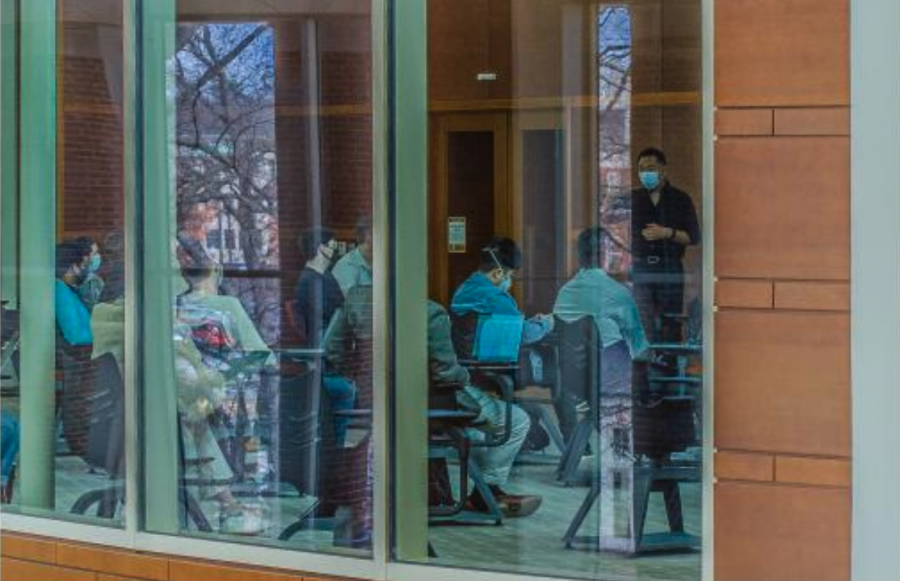Navigating profs and office hours
The fundamental building block for success is the fostering of interpersonal relationships between students, faculty and the community
In order to set yourself up best for success at Wake Forest, build relationships with your teachers and fellow students.
August 19, 2021
Entering Wake Forest, I had preconceived notions that are similar to many of my peers’ experiences, where high school teachers and counselors had warned us of the terrors of college and higher education — along with the unrelenting apathy of professors at these institutions. These notions were a stark contrast to the professors that I encountered. While each professor is different, and some are revered for their kindness and others their harshness. I felt that professors at Wake Forest had the goal of academic excellence and worked with the students to achieve this.
One of the most important pieces of advice that a professor gave me my freshman year of college is that, “You put in what you get out: garbage in, garbage out.” That is a lesson that has remained true throughout my experience thus far. Professors do not want to see students fail and there are ample resources to help a student succeed in their academic endeavors — with the stipulation that the student also puts in the effort.
I stress that one of the fundamental building blocks for success is the fostering of interpersonal relationships between students, faculty and the campus community. The bridge to building these relationships stems from an important aspect of one’s college experience: office hours. Often overlooked or mentioned fleetingly by your college tour guide, the importance of office hours should be established during the beginning of the semester.
It is an opportunity wasted not to take advantage of the time and resources offered during a professor’s office hours. This time gives students the ability to engage with the material on a personal level, building a connection with their professors in the process. Even if a course’s content seems to be effortless, the establishment of this relationship builds the foundation for support later on in the course or even later on in one’s life.
Communication is crucial for having a beneficial experience inside and outside of the classroom. Engaging in the classroom allows students to better understand the content, and building the foundation of communication allows for help in the event that it is needed. Being an active and focused participant in classrooms will benefit you in the long run, because what you put into the course is what you will get out.
There is a reason that Wake Forest’s nickname is “Work Forest,” because the spirit of hardworking and dedicated students make up the student body and the campus environment. Arrive to class with this mindset and you will be set up for success in and outside of the classroom. Gestures such as extending gratitude towards your professor, participating in class or reaching out with an email go a long way toward fostering the crucial relationship and foundation for a community.
Don’t be afraid to reach out — trust me — I’ve had my fair share of anxiety and fright toward attending office hours or admitting that I needed help, but professors at Wake Forest are here to help and you shouldn’t hesitate to communicate. Ultimately, Wake Forest provides so many resources and opportunities to have a successful experience in the classroom, and your professor is one of the first resources that will jumpstart your academic journey.















